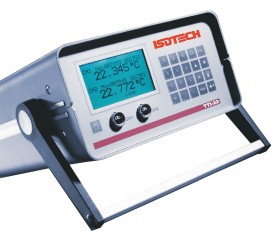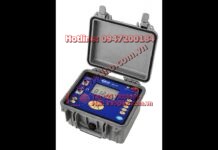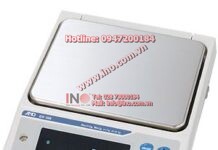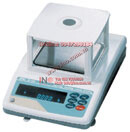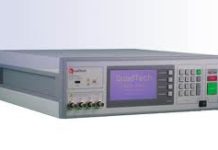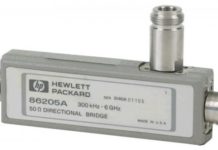Quite simply the TTI 22 high accuracy thermometer sets new standards in the price to performance ratio for industrial and secondary resistance thermometry. The TTI 22 has an accuracy of 0.001°C and a resolution of 0.0001°C (0.00004 Ohms)
Quite simply the TTI 22 high accuracy thermometer sets new standards in the price to performance ratio for industrial and secondary resistance thermometry. The TTI 22 has an accuracy of 0.001°C and a resolution of 0.0001°C (0.00004 Ohms).
It has two input channels, is lightweight (1.8 kg) and will operate for more than 10 hours from two small AA cells. It has both RS 232 and Ethernet ports.
It is easy to use, and supports both industrial 100 Ohm probes and SPRTs to ITS-90, 25.5 and 100 Ohms. Up to 30 probe calibrations can be stored along with the calibration expiry date so the instrument can warn when the calibration time has been exceeded. Built in statistics calculation can show you both the measured and average values along with the standard deviation over previous measurements.
The TTI 22 is ideal as a reference standard alongside liquid calibration baths, for the smallest uncertainty calibration with dry blocks or for demanding stand-alone measurement applications. Previously this level of performance was confined to specialist laboratories with expensive thermometry bridges; TTI 22 delivers 5 to 10 times the performance of comparably priced instruments.
High accuracy
The TTI 22 continually compares the connected sensor to a highly stable precision internal reference resistor. For a Pt100 at 0°C, the annual stability for absolute measurement is typically ±1.3 mK (5 ppm x 100 Ω = 0.5 mΩ / 1.3 mK).
For comparison calibration, when a reference probe is compared to a calibrated standard, the long term stability is not important as any change of value is cancelled in the comparison. The temperature coefficient is 0.3 ppm /°C and the measuring time, for both channels is just 1.44 s.
The instrument can be configured to measure ratio of the measured resistance of the two input channels, a technique familiar to users of older style thermometry bridges.
The overall uncertainty of the instrument and probe together will be determined by the model of probe and the temperature range. For the majority of applications, the contribution of the instrument uncertainty will be negligible compared to the uncertainty of the calibrated probe. Recommended probes include the 909/100 and 670SQ/100, 935-14-16, 935-14-95L and H.
The TTI 22 included Cal Notepad software for easy monitoring and logging of data. For full automate comparison calibration, TTI 22 is fully compatible with VISULOG advanced data management software.
Specifications and performances in temperature @20°C
Uncertainty is given in % of reading (display) + fixed value.
Resistive probes: Measurement
| Type | Measurement range | Resistance range | Resolution | Measuring current | Uncertainty / 1 year |
| 25.5 / 100 Ω SPRT to ITS-90 | -250 to +960°C | 0 to 440 Ω | 0.0001°C / 0.1 mK / 40 µΩ | 0.41 mA | 0.001°C / 1 mK 0.4 mΩ at 20°C |
| Pt100 (BS EN 60751 / IEC 751) |
Self-heating test current: 0.29 mA (0.41 mA / √2)
Measuring time: 1.44 s for both channels
Reference resistor: 280 Ω, stability: ±5 ppm/year
General specifications
| Size | 190 x 112 x 240 mm |
| Weight | 1.8 kg |
| Display | Dual input LCD display |
| Power supply | 7.5 VDC, 250 mA power adaptor |
| Battery | Type: 2x AA batteries Battery life: > 10 hours typical |
| Communication ports | RS 232, Ethernet |

